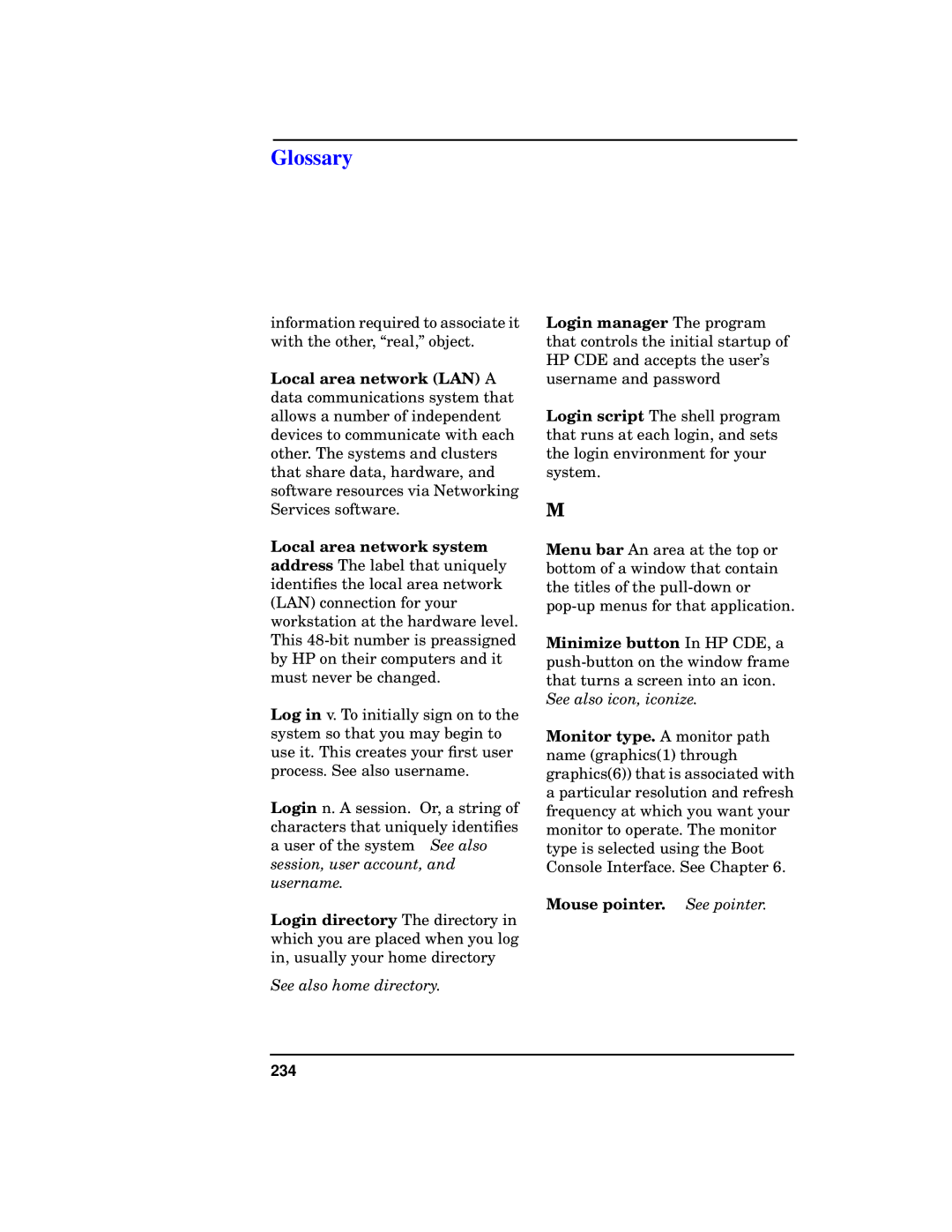
Glossary
information required to associate it with the other, “real,” object.
Local area network (LAN) A data communications system that allows a number of independent devices to communicate with each other. The systems and clusters that share data, hardware, and software resources via Networking Services software.
Local area network system address The label that uniquely identifies the local area network (LAN) connection for your workstation at the hardware level. This
Log in v. To initially sign on to the system so that you may begin to use it. This creates your first user process. See also username.
Login n. A session. Or, a string of characters that uniquely identifies a user of the system See also session, user account, and username.
Login directory The directory in which you are placed when you log in, usually your home directory
See also home directory.
Login manager The program that controls the initial startup of HP CDE and accepts the user’s username and password
Login script The shell program that runs at each login, and sets the login environment for your system.
M
Menu bar An area at the top or bottom of a window that contain the titles of the
Minimize button In HP CDE, a
See also icon, iconize.
Monitor type. A monitor path name (graphics(1) through graphics(6)) that is associated with a particular resolution and refresh frequency at which you want your monitor to operate. The monitor type is selected using the Boot Console Interface. See Chapter 6.
Mouse pointer. See pointer.
234
